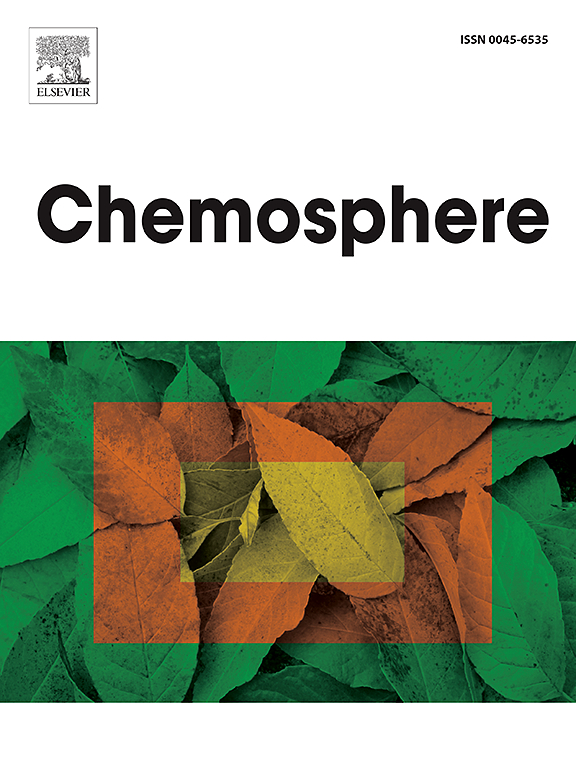The effect of extracellular polymeric substances on the distribution and transmission of antibiotic resistance genes treating antibiotic wastewater via microbial electrolysis cells
IF 8.1
2区 环境科学与生态学
Q1 ENVIRONMENTAL SCIENCES
引用次数: 0
Abstract
Microbial electrolysis cells (MEC) have emerged as a prominent technology for the treatment of antibiotics-containing wastewater in recent years. However, there remains a dearth of comprehensive exploration regarding the influence of extracellular polymers substances (EPS) on the distribution and transmission of antibiotic resistance genes (ARGs) in MEC. In this study, we quantified the distribution of ARGs in MEC by Fluorescence quantitative polymerase chain reaction and explored with emphasis on impact of EPS component on ARGs transmission at under different concentrations of roxithromycin. Results showed that the absolute abundance of ARGs in the electrode biofilm was 1–2 orders of magnitude higher than that in the anolyte. Specifically, EPS-associated ARGs accounted for 2.31%–11.18% of ARGs in electrode biofilm. The presence of elevated roxithromycin concentration led to electroactive microorganisms ( and ) as potential hosts of ARGs. In addition, both protein and polysaccharide content in the electrode biofilm increased with increasing roxithromycin concentration and showed positive correlations with EPS-associated ARGs. Fluorescence quenching experiments further elucidated that tryptophan and tyrosine residues in EPS could bind to ARGs effectively, contributing the hindering the ARGs transmission between hosts. Therefore, increased EPS content within electrode biofilm could reduce the concentration of ARGs present in anolyte while also influencing ARGs distribution throughout MEC. This study provides valuable insights into the distribution of ARGs in MEC systems and the role of EPS in regulating ARGs migration.细胞外聚合物物质对通过微生物电解池处理抗生素废水的抗生素耐药基因的分布和传播的影响
近年来,微生物电解池(MEC)已成为处理含抗生素废水的一项重要技术。然而,关于胞外聚合物物质(EPS)对抗生素耐药基因(ARGs)在 MEC 中的分布和传播的影响,目前仍缺乏全面的探索。本研究采用荧光定量聚合酶链式反应对 MEC 中 ARGs 的分布进行了定量,并重点探讨了不同浓度罗红霉素作用下 EPS 成分对 ARGs 传播的影响。结果表明,电极生物膜中 ARGs 的绝对丰度比溶解液中高出 1-2 个数量级。具体来说,与 EPS 相关的 ARGs 占电极生物膜中 ARGs 的 2.31%-11.18%。罗红霉素浓度升高导致电活性微生物( 和 )成为 ARGs 的潜在宿主。此外,随着罗红霉素浓度的增加,电极生物膜中的蛋白质和多糖含量也随之增加,并与 EPS 相关 ARGs 呈正相关。荧光淬灭实验进一步阐明,EPS 中的色氨酸和酪氨酸残基可与 ARGs 有效结合,从而阻碍 ARGs 在宿主间的传播。因此,电极生物膜中 EPS 含量的增加可降低溶液中 ARGs 的浓度,同时也会影响 ARGs 在整个 MEC 中的分布。这项研究为了解 ARGs 在 MEC 系统中的分布以及 EPS 在调节 ARGs 迁移中的作用提供了宝贵的见解。
本文章由计算机程序翻译,如有差异,请以英文原文为准。
求助全文
约1分钟内获得全文
求助全文
来源期刊

Chemosphere
环境科学-环境科学
CiteScore
15.80
自引率
8.00%
发文量
4975
审稿时长
3.4 months
期刊介绍:
Chemosphere, being an international multidisciplinary journal, is dedicated to publishing original communications and review articles on chemicals in the environment. The scope covers a wide range of topics, including the identification, quantification, behavior, fate, toxicology, treatment, and remediation of chemicals in the bio-, hydro-, litho-, and atmosphere, ensuring the broad dissemination of research in this field.
 求助内容:
求助内容: 应助结果提醒方式:
应助结果提醒方式:


